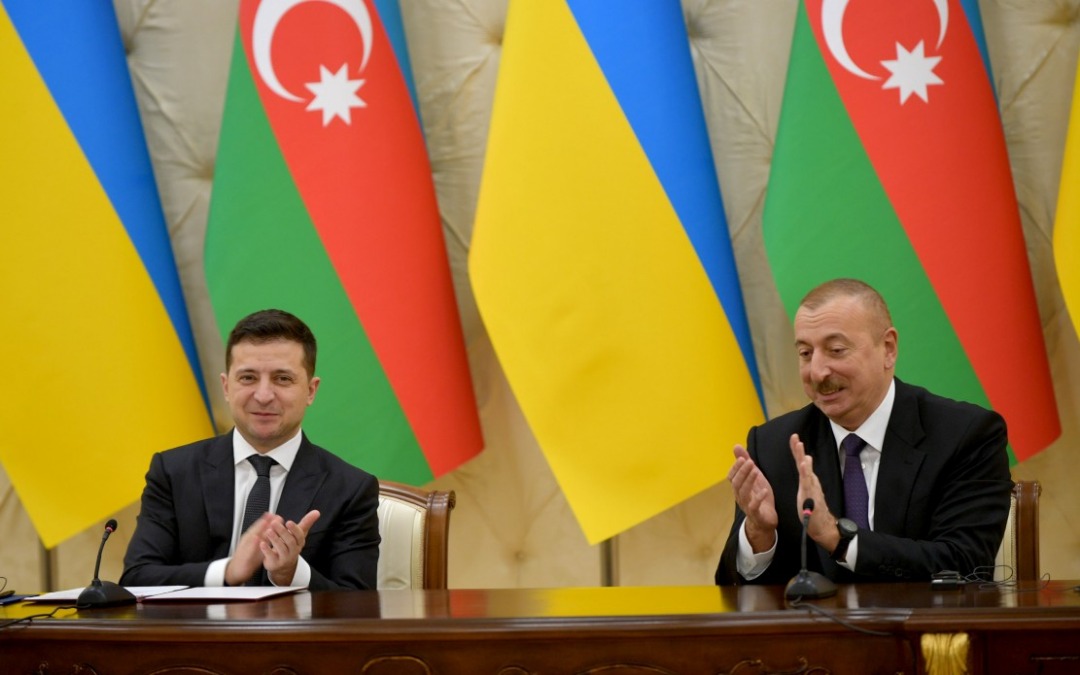In general, the determining components of the US policy in relation to the South Caucasus, and including the Republic of Azerbaijan, encompass cases such as the safe transfer of energy to Europe, maintaining stability in the region (especially regarding Russia’s use of possible instability to intervene in the Caucasus and not endangering energy resources and energy transmission lines), terrorism, the Karabakh crisis, the role of the Armenian lobby in the United States, as well as the considerations of Turkey as a member of NATO and an ally of the United States.
In fact, influenced by regional and global conditions, at any point the role of one or more of the mentioned considerations in shaping the US policy has been highlighted.
For example, in the years after 9/11 the administration of George W. Bush announced the Republic of Azerbaijan ally in the fight against terrorism; therefore, Washington provided military aid to the Republic of Azerbaijan.
Also, in 2020, the relations between the United States and the Republic of Azerbaijan were subject to the consideration of the new Karabakh war. Recent developments in Washington-Baku relations show the fact that right now the energy factor is the most important factor shaping the US policy towards the Republic of Azerbaijan, in such a way that the US policy towards the Republic of Azerbaijan is changing.
During his 2020 campaign, which accidentally coincided with a new Karabakh war, Joe Biden announced that his would-be administration would contain Russia and Turkey. Biden’s critics believed that his administration’s silence on the Karabakh crisis is a bad blow to the credibility of the United States and Western values.
Despite the request of critics to emphasize the role of the US in the Karabakh crisis, the relations between the two countries, the United States and the Republic of Azerbaijan, were in a neutral and inactive state, but Russia’s war against Ukraine is changing this situation.
Following Russia’s attack on Ukraine, a new consideration was formed for the development of relations between the United States and the Republic of Azerbaijan, and it was an energy driver. Although this consideration has always been considered by the United States, it has recently been highlighted and is the main defining factor of Baku-Washington relations. Because, the South Caucasus hosts important infrastructure and energy transmission pipelines that can transport Caspian Sea oil and gas to Europe through Turkey.
This issue plays an important role in reducing Europe’s dependence on Russian energy. With Russia’s attack on Ukraine and imposition of Western sanctions against Russia, two issues related to the Republic of Azerbaijan were very important for the United States: first, to ensure the transfer of energy from the Republic of Azerbaijan to Europe. Second, the Republic of Azerbaijan not to violate Russian sanctions.
In this regard, in recent weeks and months, the policy of the Biden administration has become more active in the South Caucasus region. The regular interactions and visits of senior Washington officials and transmission of Biden’s personal messages are proof of this. The United States seeks to encourage Armenia and the Republic of Azerbaijan to make peace and reconciliation, so that it will be easier to transfer oil and gas from the Republic of Azerbaijan to Europe.
In fact, Western countries know very well that the requirement for the safe transfer of energy from the Caucasus region to Europe is that the Republic of Azerbaijan and Armenia achieve peace and compromise, therefore the United States seeks to create an environment for dialogue and, as a result, peace between the Republic of Azerbaijan and Armenia. If peace is achieved, the US administration will not be accused of ignoring the interests of Armenia, especially by the Armenian lobby. On the other hand, the Republic of Azerbaijan also uses the privilege of the West’s need for its energy for the recognition of what it achieved in the 2020 war. Therefore, the mutual need of the US and the Republic of Azerbaijan has caused the Yerevan-Baku peace to be tied to the issue of energy.
In conclusion, it should be said that the consequences of the war in Ukraine not only forced the Biden administration to reconsider the previous policies of the White House towards countries such as Saudi Arabia and Venezuela, but also caused the attention of the United States to be drawn once again to the Caucasus region and specifically to the Republic of Azerbaijan. By activating its policy in the Caucasus, the Biden administration seeks to both ensure the safe transfer of energy and not allow the situation in the South Caucasus to get out of its control and fall under the full influence of Russia. In the meantime, this new policy of the US administration is also favorable for the Baku government, because it creates a balance between the policies of Moscow and Washington.
Dimensions and Consequences of Erdoğan’s Visit to Iraq
Strategic Council Online – Note: Turkish President Recep Tayyip Erdogan’s recent trip to Iraq, after his last visit to Baghdad 13 years ago, is considered one of the most important political, economic, and security developments in the relations between the two countries.
Hamid Khoshayand- an expert on regional issues










0 Comments